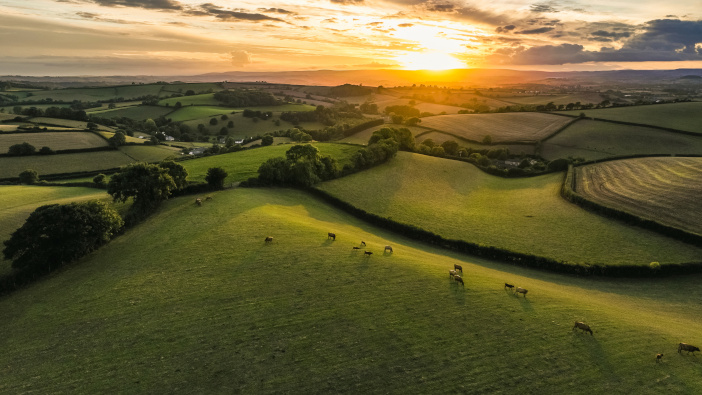While the weather held off some sales earmarked for the start of the year, Carter Jonas is suggesting that there could be a surge in land sales this spring.
Despite the challenges, supply was up almost 50% compared to the first quarter of 2023, with 11,400 acres marketed and the consultancy expects the typical hive of activity that comes with warmer temperatures and longer days.
“Supply in the first three months of the year is typically a fraction of the level of supply that comes to market in the second or third quarter,” said Andrew Chandler, head of Rural Agency at Carter Jonas.
“Wet weather has delayed numerous launches, indicating that the usual surge in supply in the spring will be greater than in recent years.”
The company’s Farmland Market Update suggests that there is robust demand from a range of buyers, which will drive values upwards. From 1 January to 31 March average arable land values in England and Wales increased by 0.9% to £9,667/acre, and pasture grew by 0.7% to £7,806/acre.
Add to this the fact that inflation has fallen faster than projected, reducing to 3.2% this morning, and it is expected that the Bank of England will start bringing down the base rate.
“Easing inflationary pressures offer a welcome relief for farming businesses, meaning a potential decrease in the cost of inputs, more stable customer demand and potentially easier access to credit if interest rates follow suit,” added Andrew.
“Nonetheless, there does remain uncertainty in the economic outlook. The expectation of interest rate cuts, a significant cash presence, and rising traction within the natural capital market mean the overall farmland market remains optimistic.
“With buyers’ appetites for land remaining strong, we can expect values to continue to continue their upward trend.”
The increase in supply is expected to be matched by healthy interest, particularly from investors and farmers looking to enter into environmental agreements.
“In the Spring Budget, the government announced the extension of agricultural property relief from inheritance tax (starting April 2025) to land managed under an environmental agreement,” explained Sophie Davidson, Carter Jonas research associate. “This provides reassurance to farmers who have already entered an Environmental Land Management scheme and removes a major barrier for those looking to enter an agreement.”
She added: “With the relentless rain preventing many farmers from drilling winter crops and now delaying spring planting, farmers have been increasingly exploring strategies to ensure a more predictable income.
“Defra’s Farm Opinion Survey (published in October 2023) illustrates this trend, noting that 55% of respondents have made changes to their farm due to the weather and/or climate change, up from 46% just six months earlier. While this predates the recent wet weather, it indicates a longer-term trend that is likely to become more pronounced with the shift towards more extreme weather conditions.”
For more information go to www.carterjonas.co.uk


